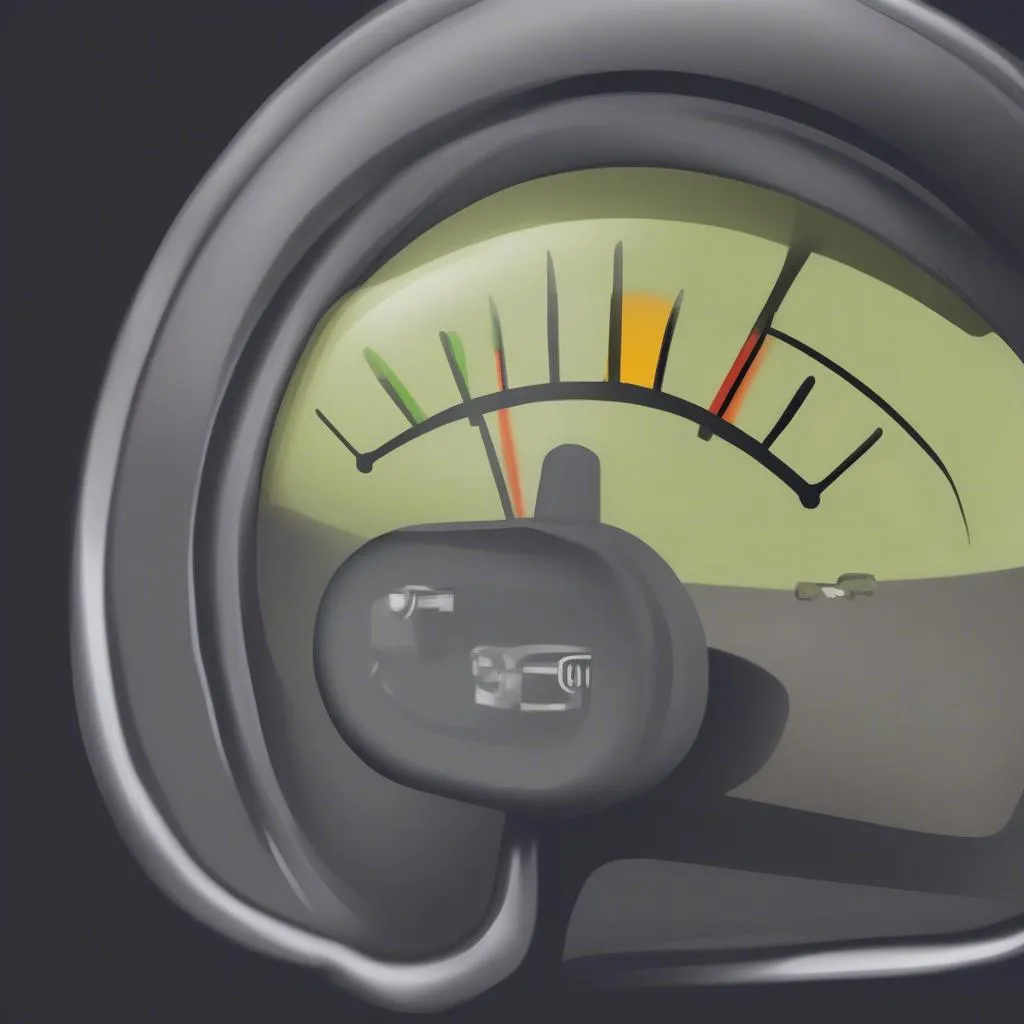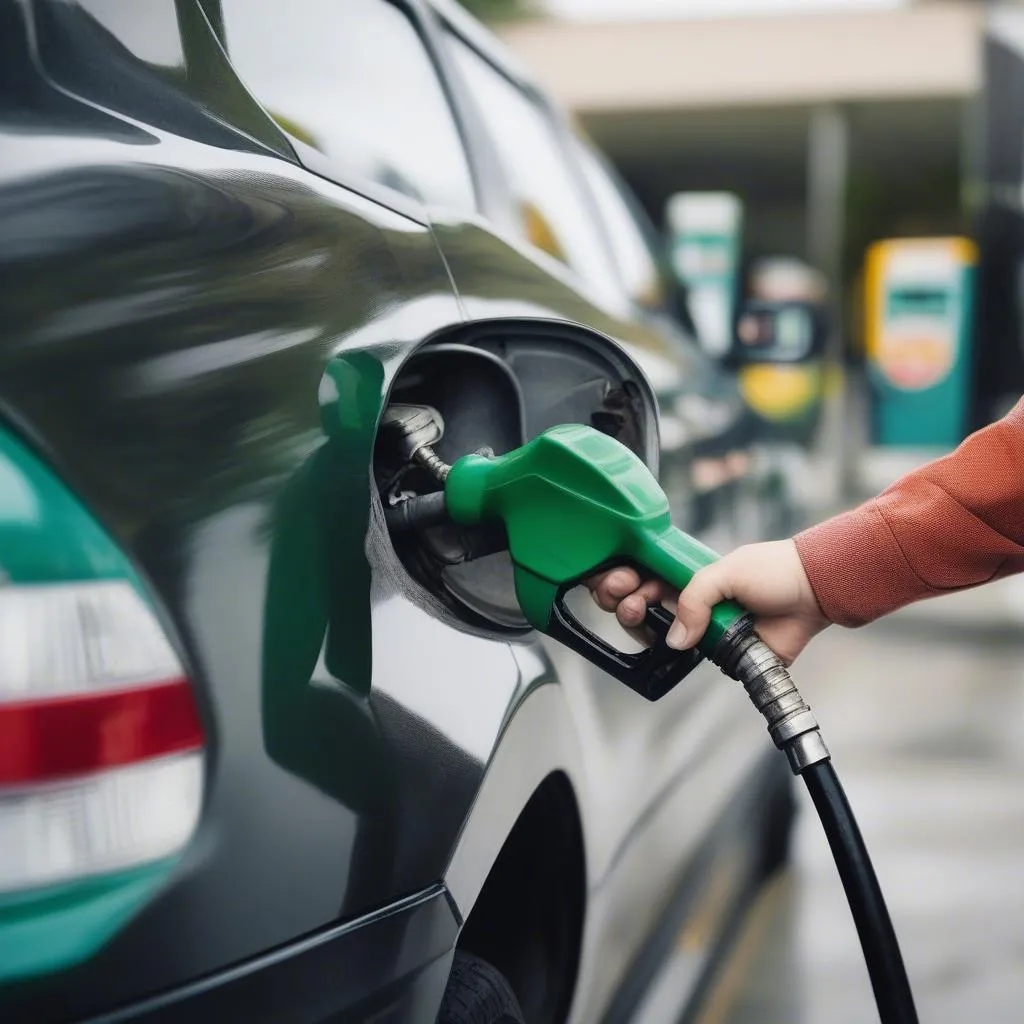Imagine this: You’re on a long road trip, cruising down a scenic highway, and suddenly, the fuel gauge starts to flicker, reminding you of the dreaded “E” approaching. You pull over to the nearest gas station, but you’re not sure how many gallons your car can hold. You might be thinking, “How much gas do I really need? Will this tank be enough to get me to my destination?” This is where the question “How Many Gallons Can A Car Hold?” becomes a vital piece of knowledge for any car owner, especially during those long drives.
Understanding the Importance of Fuel Capacity
Knowing your car’s fuel capacity is crucial for several reasons:
1. Planning Your Trips:
“How many gallons can a car hold?” is a question that pops up in every car owner’s mind when planning a long road trip. You want to make sure you have enough fuel to reach your destination, especially if you are driving through remote areas with limited gas stations.
2. Budgeting Your Gas Expenses:
By knowing your car’s fuel tank size, you can estimate your gas expenses more accurately. You can also use this information to compare gas consumption between different vehicles and potentially make more fuel-efficient choices.
3. Understanding Fuel Efficiency:
Fuel capacity is directly related to your car’s fuel efficiency. A car with a larger fuel tank might not be necessarily more fuel-efficient than a car with a smaller tank. Knowing both the fuel capacity and the average fuel consumption of your vehicle will give you a better understanding of its overall efficiency.
How to Determine Your Car’s Fuel Tank Size
There are several ways to figure out the fuel tank size of your car. Let’s explore these options:
1. Check Your Owner’s Manual:
The most reliable source of information is usually your car’s owner’s manual. This manual will provide detailed specifications for your car, including its fuel tank capacity.
2. Inspect the Fuel Tank Door:
Many newer vehicles display the fuel tank size on a sticker located inside the fuel tank door. This is a quick and easy way to find out the information.
3. Consult Online Resources:
Websites like Edmunds or Carfax can provide detailed specifications for different car models. You can search for your car model and find the information you need.
4. Contact Your Local Dealership:
If you cannot find the information in the above resources, contact your local car dealership. They can provide you with the exact fuel tank capacity for your specific car.
Factors That Influence Fuel Tank Size:
Several factors can affect the size of a car’s fuel tank:
1. Vehicle Type:
Cars designed for long-distance driving, such as SUVs and pickup trucks, generally have larger fuel tanks compared to smaller vehicles like sedans or compact cars.
2. Engine Size:
Vehicles with larger engines generally require more fuel. Therefore, they often have bigger fuel tanks to support their increased fuel consumption.
3. Manufacturer Decisions:
Ultimately, the final decision about fuel tank size rests with the car manufacturer. They take into account various factors, such as target market, vehicle design, and fuel efficiency targets, to determine the optimal fuel tank size.
Common Questions About Fuel Capacity
“How many gallons can a car hold?” is often followed by other questions related to fuel consumption and efficiency. Here are some common inquiries:
1. How can I calculate my car’s fuel efficiency?
You can calculate your car’s fuel efficiency by dividing the number of miles you drive by the number of gallons of fuel you use. This will give you your car’s fuel economy in miles per gallon (MPG).
2. How can I improve my car’s fuel efficiency?
There are several ways to improve your car’s fuel efficiency, such as:
- Drive at a steady speed: Sudden acceleration and braking can waste fuel.
- Avoid idling: Turn off your engine when you are not driving, like at stoplights or while waiting for someone.
- Use the right tire pressure: Under-inflated tires can decrease fuel efficiency.
- Regularly maintain your car: Ensure that your engine is properly tuned and that your tires are properly inflated.
3. What are the benefits of using a fuel additive?
Fuel additives can help to improve engine performance and fuel efficiency. However, not all additives are created equal. Be sure to choose a reputable brand and follow the instructions on the label carefully.
4. What are the benefits of using a fuel-efficient driving technique?
Fuel-efficient driving techniques can help you save money on gas and reduce your carbon footprint. Try to anticipate traffic conditions and adjust your speed accordingly. Smooth acceleration and braking can also help to improve fuel economy.
Finding Your Car’s Fuel Capacity: It’s Not That Hard!
Knowing how many gallons your car can hold is essential for planning road trips, budgeting your gas expenses, and maximizing fuel efficiency. Armed with this knowledge, you can confidently navigate the open road and make informed decisions about your vehicle’s fuel needs.
 fuel-gauge-car
fuel-gauge-car
 gas-pump-fuel-tank
gas-pump-fuel-tank
If you need help with diagnostics tools or have any questions about car maintenance, feel free to reach out to us via WhatsApp: +84767531508. Our expert technicians are available 24/7 to assist you.
We hope this article was informative and helpful!
Please share this information with your friends and family, and don’t forget to leave a comment below if you have any other questions!
